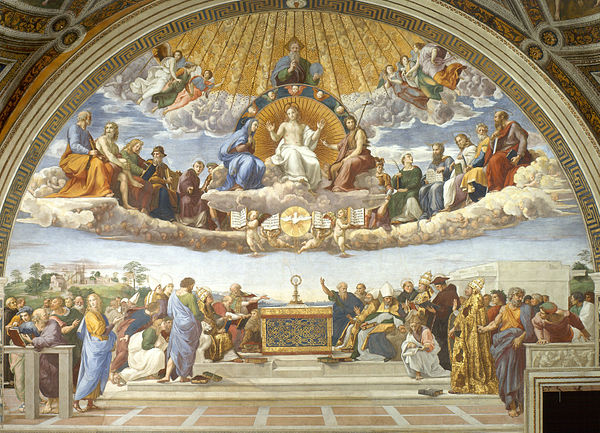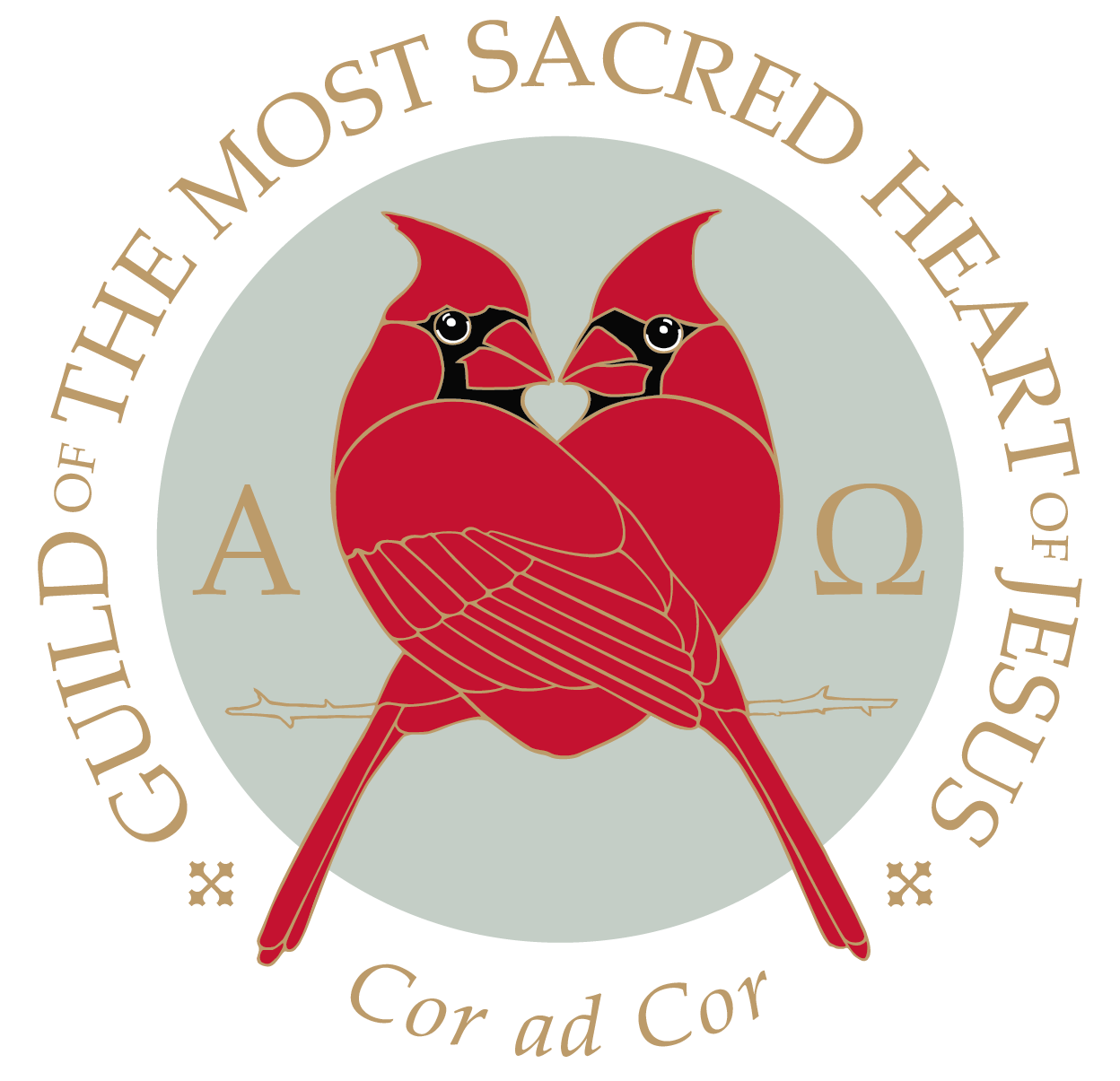
|
“Though the cloud from sight received Him when the forty days were o’er, shall our hearts forget His promise, ‘I am with you evermore'”? These are words from a very beautiful and familiar hymn to many of us, ‘Alleluia! Sing to Jesus’, written by an early 19th century hymn writer, William Chatterton Dix. Dix was an Englishman, a high Anglican and a merchant involved in insurance in the city of Bristol (where many of the adventurers came to discover the New World.) Dix was not primarily known for being an insurance merchant. He was a poet, and something of a liturgist as well. And he is responsible for not just this beautiful hymn, but many others including cherished Christmas carols.
We are in the Ascensiontide, the time between the Ascension of Our Blessed Lord on the Mount of Olives, which we celebrated on Thursday, and the descent of the Holy Spirit at Pentecost, which is next Sunday: the original Novena. In this period of Ascensiontide, we are called to deepen our prayer and our longing for the coming of the Spirit. It is no surprise, then, that we are given nuggets of information about the Holy Spirit and His work and role within our Christian family.
But the Introit seems to paint a rather different picture. Instead of consoling us that the Spirit will come, the text taken from the Psalms is rather curious: My heart has said to thee, ‘I have sought your face. Your face, Oh Lord, will I see. Hide not your face from me. Three times it expresses the longing to see the face of God, quaesivi vultum tuum; vultum tuum. Domine requiram; ne averstas faciem tuam a me Three times, as if an exclamation point. In this season of Ascensiontide, these nine days, this is the time when the face of God has been taken away from us. You see, God the Father has no face. God the Holy Spirit has no face, either. God, by His nature, is pure spirit, and not material. To have a face means that you must have matter. To have a face, you must have a body, you must have stuff, you must be visible and touchable. God in His essence is invisible and intangible, dwelling, as Scripture tells us, in unapproachable light. The only face that God has is that of the incarnate Word, which has just been taken up into Heaven.
The longing to see the face of God can only be answered in the Incarnation, when definitively, the Second Person of the Trinity took our flesh and gave us the face of God. The answer to this longing of the Church is, in fact, the Holy Spirit, the Comforter, Consoler, Paraclete. He is the one who will reveal the face of God, not just for one time, but for all time. The Holy Spirit is at work constantly revealing the face of God. Unless the Lord ascends to Heaven and the Holy Spirit descends, to seek the face of God is more difficult, because if the Incarnate Word is walking the Earth, then the face of God can only be discovered in one location. If the Paraclete comes, then the face of God can be discovered where the Paraclete is, and that is, namely, everywhere.
The Gospel gives us very precise information about the Holy Spirit, who He is, and how He relates to the rest of the Trinity. The concepts surrounding the theology of the Holy Spirit, called pneumatology, are complicated, because they require a foundation in philosophy, that is to say, making arguments in a logical and precise way, and using language in a logical and precise way.
One of the problems that we have faced from the beginning in understanding the Holy Spirit is the word Spirit itself. In English, we tend to use the word spirit rather differently from the description of God and His Holy Spirit. We bring into the word pre-loaded ideas, baggage which does not fit the true meaning of God, the Holy Spirit. The Holy Spirit is not the taste or flavor of God or attributes of God: His goodness, truth, beauty. Those attributes are posited of all three Persons of the Trinity, not just the Holy Spirit. Instead, the Holy Spirit is a Person, not an adjective; a Person who is God, Himself.
Why do we struggle with this idea of the Personhood of the Holy Spirit? St. Thomas would say we struggle with the idea of the Personhood of the Holy Spirit, because of the limitations of language, and the limitations of experience. Concerning the limitations of experience, he says that in creation, there are no examples of persons that proceed from another from will as love. There are no persons that proceed from another from the will as love.
There are examples of creatures who are generated from nature as son; for that reason, the Personhood of our Lord Jesus Christ is much easier for us to understand, because we can compare the Personhood of the Incarnate Word, begotten as Son, to those creatures who are generated from nature as sons. Because we have no experience of a person who is not generated, not begotten, but proceeds from will as love, we are attempting to understand a concept of which we have no previous data. The Holy Spirit proceeds from the Father and the Son; we are using a general and not a specific term, whereas when we say that the Son is begotten of the Father, the verb to beget has a very specific, precise theological meaning, which is easier to understand. But that is not the case with to proceed. So thanks to St. Thomas for making things both clearer and more complicated at the same time.
The equality of the Holy Spirit is not as difficult as an idea, but His Personhood is much more of a struggle to understand. St. Thomas helps us to understand further the concept of Personhood in the Three Persons of the Trinity. St Thomas tells us there must be an opposition between the three of them. In our understanding of the word opposition, we might think that it means to be against or contrary. St. Thomas means not direct opposition, but opposition in relation. If the Three Persons of the Trinity did not have opposition in relation, they would not be persons distinct from one another; they would simply be adjectives describing one God and one Person, which they are not. That is a heresy. The Trinity is one God in three persons, necessarily, logically, there must be opposition in relation.
St. Thomas tells us what that opposition in relation concerns the relations of origin, in other words, where the Persons spring from. The Father is unbegotten. The Son is eternally begotten, always being begotten. And the Holy Spirit is proceeding from both the Father and the Son. There is a debate on the procession of the Holy Spirit from the Son. That debate or argument is one of the reasons for the sad division between the two lungs of the Christian church, the East and the West. The Greek Orthodox complaint is that Catholics misunderstand Sacred Scripture, in particular John 15 where the Lord says that the Holy Spirit comes forth from the Father, and did not actually proceed from the Son. But in fact, when you look at Sacred Scripture more carefully, you will note that the Father and the Son are always mentioned in relation to the procession of the Holy Spirit. Indeed, the Paraclete is described as the Spirit of Truth.
St. Thomas very helpfully reminds us that for Him to be described as the Spirit of Truth is the same thing as saying He is the Spirit of Jesus, because Jesus is the Way, Truth and Life. The title of the Holy Spirit, the Spirit of Truth, shows His relationality to the Son and His procession from the Son, being sent from the Father and being sent from the Son. The Spirit’s role, then, is to enliven the Church, and that is the age in which we live. We are in the age of the Spirit. We need to have this theological background in order to distinguish between the Three Persons. If we cannot distinguish between the Three Persons of the Trinity, then it will be difficult to give a good account to somebody who is not yet a Christian.
It behooves us to do the work to try to understand the Personhood of the Holy Spirit. We do not need to be a theologian like St. Thomas Aquinas, perhaps the greatest intellect ever to be born. Nevertheless, there is always more that we can learn to be able to give a clear and acceptable account. It does not need to be a perfect account, but an acceptable account of who God is as a Trinity: Father, Son, and Holy Spirit. You and I know the Spirit more from His work amongst us. He will bring us into all truth, and He will reveal the Son to us. The Spirit’s role is focused in the Eucharist, in which, by the action of the Holy Spirit, the face of God is revealed anew for each one of us every time Holy Mass is celebrated.
We know, by faith, that is true. By the action of the Holy Spirit, what was bread becomes the Body, Blood, Soul and Divinity, of Our Lord and Savior, Jesus Christ. God only has one face, and it is the face of Christ. The work of the Holy Spirit, then, is to reveal the face of God in the Eucharist. “Hide not your face from me. It is your face, Lord, that I seek.” The Holy Spirit says, “Yes.” He consults with the Lord. You seek His face, and His face is here, His face is visible, and His face is everywhere.
The Third Person, then, is not a geographical description. It is a model description. The Holy Spirit comes because He wants to. The Holy Spirit is sent because He is obedient. And the Holy Spirit is received in hearts that are prepared for Him, as in the words of Chatterton Dix, “Thou within the veil hast entered, robed in flesh, our great high priest, and thou on earth both priest and victim in the Eucharistic feast.”
PRAY
